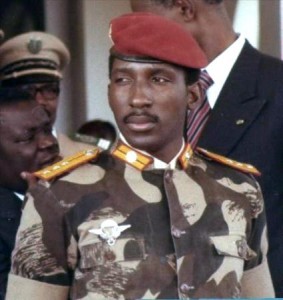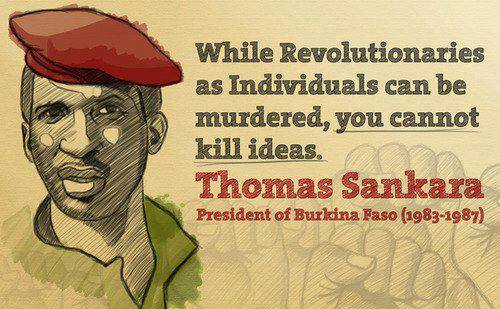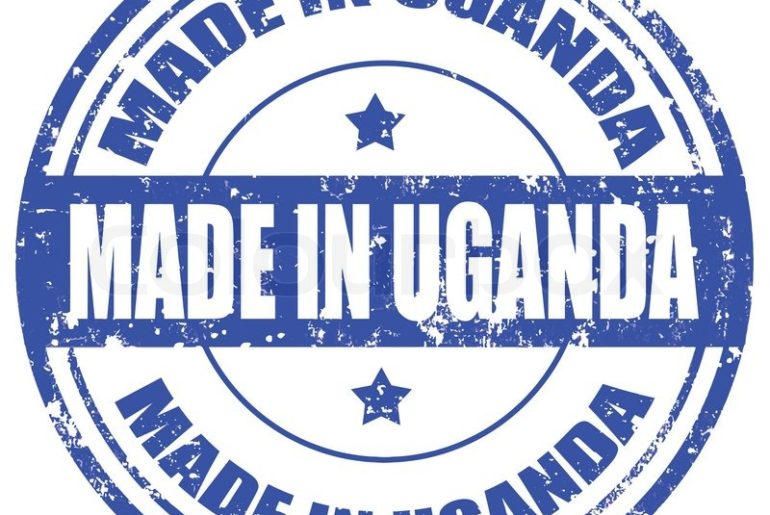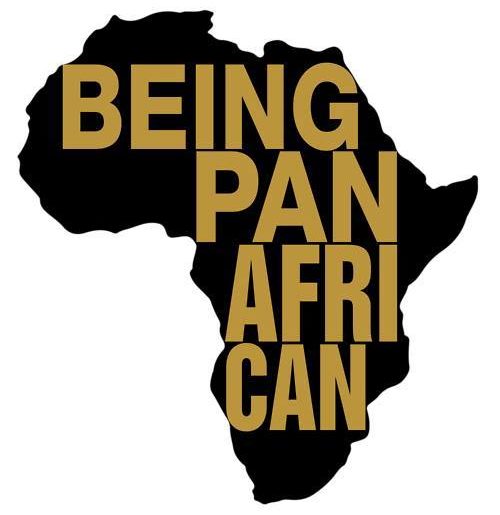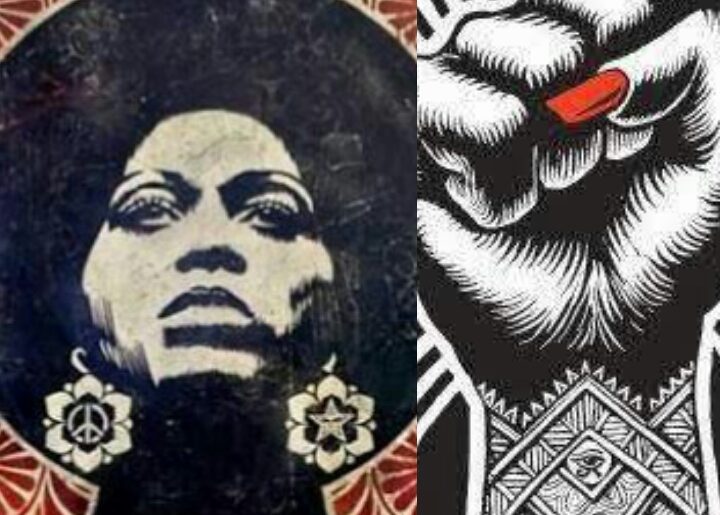Many revolutionary leaders talk the talk but don’t always walk the walk, but with Sankara his revolutionary principles guided his own life. At the time of his death he had a salary of $450 a month and his most valuable possessions were a car, four bikes, three guitars, a fridge and a broken freezer. He was the world’s poorest president but indeed its richest revolutionary. It been 20 years since the assassination of Sankara and 12 of his aides in October 1987.
Born Thomas Isidore NoÎl Sankara into a Silmi-Mossi family in northern Burkina Faso town of Yako on 21 December 1949, his Roman Catholic parents wanted him to become a priest but he opted instead for a military career, a path that many Africans of his generation pursued as a route to a better life. In 1970 at the age of 20, Sankara was sent for officer training in Madagascar where he witnessed a popular uprising of students and workers that succeeded in toppling Madagascar’s government. Before returning to Burkina Faso in 1972 Sankara attended a parachute academy in France where he was exposed to left-wing political ideologies – particularly as they related to France’s neo-colonial relations with her former colonies. In 1974 he earned much public notoriety for his heroic performance in the border war with Mali, but years later he renounced the war as “useless and unjust” a reflection of his growing political consciousness. By 1976 his ascending military career brought him to the town of Po where he took command of the new National Training Centre for Commandos.
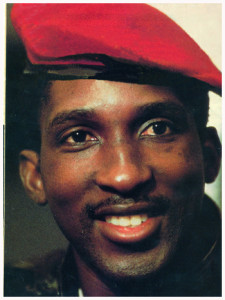
By early 1980s, the country was rocked with series of labour union strikes and military coups. Sankara’s military achievements and charismatic leadership style made him a popular choice for political appointments but his personal and political integrity put him at odds with the leadership of the successive military governments that came to power. In 1980 he was singled out for a government appointment by army chief of staff Col Saye Zerbo who seized control of the country in a military coup in November of that year and formed a new government, the Military Committee for the Enhancement of National Progress (CMRPN) Sankara refused to join the CMRPN, but was nonetheless given a post in Zerbo’s government. Sankara temporarily accepted the position but later resigned which led to his arrest in April 1982, along with Blaise CompaorÈ and their fellow comrade Henri Zongo.
The increasingly repressive CMRPN was shortly thereafter removed from power by another coup which led to the formation of the Council for the Salvation of the People (CSP) headed by Jean-Baptiste Ouedraogo In early 1983 Sankara was selected as the prime minister by the CSP which provided him with an entryway into international politics and a chance to meet with leaders of the Nonaligned Movement, including Fidel Castro (Cuba) Samora Machel (Mozambique) and Maurice Bishop (Grenada). That same year Sankara’s anti-imperialist stance and grassroots popularity once again put him at odds with the more conservative elements within the CSP including President Ouedraogo. In an internal coup Sankara was removed as prime minister and jailed. In response to mass demonstrations demanding Sankara’s release the CSP compromised by putting him under house arrest in the capital Ouagadougou.
On 4 August 1983 CompaorÈ along with some 250 other soldiers freed Sankara, overthrew the CSP and formed the National Council of the Revolution (CNR) with Sankara as its president. In Sankara’s words the August revolution was best understood as having “a dual character: It is a democratic and popular revolution. Its primary tasks are to liquidate imperialist domination, exploitation and cleanse the countryside of all social, economic and cultural obstacles that keep it in a backward state. From this flows its democratic character, Sankara initially focused on applying the philosophy of the revolution to transforming the national army improving policies concerning women and economic development. A year after Sankara took office Burkina Faso became the first country in Africa to run mass measles vaccination campaigns that year with the aid of Cuban volunteers, 2.5 million children were immunised for several infectious diseases and even children from neighbouring countries were vaccinated. The alarming infant mortality rates dropped to 145 deaths per 1,000 in less than two years. In an effort to slow the advance of the Sahara Desert, Sankara launched a reforestation programme that planted 10 million trees in its first year.
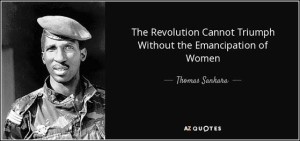
Even today trees are planted to celebrate birthdays, weddings and graduations School attendance rose from 12% to 22% in just two years and was complemented by policies to encourage attendance and eventual graduation. A campaign for the restoration of women’s dignity and recognition of their role in society was launched in order to free women from the yoke of patriarchal domination. During Sankara’s presidency Burkina Faso was a leader in employing women in government posts. In a symbolic attempt to demonstrate to men what the daily realities of women’s lives were like, he declared a day of solidarity with housewives and forced men to go to market and take responsibility for household duties Sankara refused to use the air conditioning in his office on the grounds that such luxuries were only available to a few BurkinabÈs. He refused to allow his portrait to be displayed all over the country in order to prevent a cult of personality developing around him. Shortly after coming to power he sold the government’s fleet of Mercedes-Benz and purchased affordable and easy to maintain Renault.
Sankara’s pragmatism and commitment to fiscal responsibility is still remembered: in 2003 critics of the Kenyan government’s purchase of 12 million dollars in luxury cars advised the government to follow the example set by Sankara. The most appropriate way we can honour the lives and struggles of our slain heroes is to pick up where they left off.
Sankara fought and paved ways on how we can make our countries and Africa a better place.
